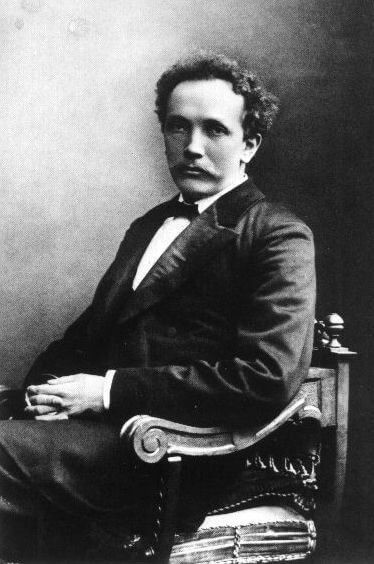 This is a guest blog by Chris Garrard, a doctoral candidate in composition at the Faculty of Music at the University of Oxford. He is also an environmental and human rights campaigner.
This is a guest blog by Chris Garrard, a doctoral candidate in composition at the Faculty of Music at the University of Oxford. He is also an environmental and human rights campaigner.
Yesterday afternoon, I attended a performance of Richard Strauss’s Metamorphosen performed by Spira Mirabilis, with their rich performance sandwiched between two informative talks. The first was from Stephen Jonhson on the piece’s structure and the latter from Roger Scruton on the piece’s philosophical backdrop. Complex ethical issues were raised, such as Strauss’s involvement with the Nazi party, his complex anti-Semitism and the destruction and militarism of World War II. But Scruton also spoke about the piece’s ability to express something universal, which points towards a common humanity. He showed that something profound can emerge from a problematic piece by a controversial composer.
But there was a large elephant in the room. The concert was being sponsored by Shell, a company who gave approximately £44.2 million to the Nigerian Security Forces in 2009 alongside other ad hoc payments to militias and other armed groups. How could we speak about Metamorphosen’s ‘contemporary relevance’ without questioning Shell’s role as the sponsor of its performance? The concert symbolically condoned in the present the activity we were condemning in the past.
So, at the end of the concert in a discussion with the performers, I asked a question. As I outlined the ethical problems of performing Strauss with Shell’s money though, some audience members groaned noisily while others applauded against them. I was disappointed but not surprised by the reaction but my question was, in reality, an aesthetic one: did the players see themselves as archaeologists, rediscovering the piece, or as inventors, discovering it afresh in a contemporary context? For me, these are two sides of the same coin because the identity of a piece is shaped and renewed by each performance – when, where and how they take place.
The performer that responded was gracious: ‘I think we cannot judge from our point of view that historical moment, although I am personally convinced that we should judge it.’ If we are to judge the past effectively, we must also cast a critical eye over ourselves also. The latter part of his answer was also perceptive. He spoke of how a friend invited to their dress rehearsal was disturbed by the ensemble’s decision to perform Strauss at all because of his connection to the Nazis. Had she known, she would not have attended. He wasn’t certain he agreed with her view but conceded that ‘being so deeply involved in “what’s happening” is what makes music contemporary and part of our lives. So, in this way, I don’t like…[the audience’s] reaction, even if I don’t completely share your opinion or don’t want to get into this topic.’
 Afterwards, I spoke to Jude Kelly, Artistic Director of the Southbank who agreed that I was absolutely right to ask my question in this setting. She talked about how tobacco industry sponsorship is all but absent from the arts and how the likes of Shell and BP need to be part of a ‘climate of commitment’ on ethical issues. But the world of classical music must unblock its ears and stop ignoring or drowning out the difficult questions and unpalatable truths. The music we compose, perform and listen to does not exist in an ethical vacuum. All music, whether it is old or newly composed, has a political content (with a small ‘p’ at the very least) that we need to confront, examine and respond to. What, for example, is the value in composing new ‘relevant’ pieces about a contemporary world if we don’t include ourselves in the issues we raise? We are simply saying in the tired, elitist way, ‘do as I say, not as I do’. Or, here is my musing on such-and-such an issue but financed and performed in a manner that is at odds with the piece’s ethos. The argument that ‘at least there is a performance at all’ is no defence when the works we create are meant to emerge from higher values. Too many composers, performers and commentators have the capacity to speak out on injustice and inconsistency but bury their heads in the sand. Many claim to be music-lovers but if they can’t speak up for music’s integrity, then they do more harm than good. This has to change.
Afterwards, I spoke to Jude Kelly, Artistic Director of the Southbank who agreed that I was absolutely right to ask my question in this setting. She talked about how tobacco industry sponsorship is all but absent from the arts and how the likes of Shell and BP need to be part of a ‘climate of commitment’ on ethical issues. But the world of classical music must unblock its ears and stop ignoring or drowning out the difficult questions and unpalatable truths. The music we compose, perform and listen to does not exist in an ethical vacuum. All music, whether it is old or newly composed, has a political content (with a small ‘p’ at the very least) that we need to confront, examine and respond to. What, for example, is the value in composing new ‘relevant’ pieces about a contemporary world if we don’t include ourselves in the issues we raise? We are simply saying in the tired, elitist way, ‘do as I say, not as I do’. Or, here is my musing on such-and-such an issue but financed and performed in a manner that is at odds with the piece’s ethos. The argument that ‘at least there is a performance at all’ is no defence when the works we create are meant to emerge from higher values. Too many composers, performers and commentators have the capacity to speak out on injustice and inconsistency but bury their heads in the sand. Many claim to be music-lovers but if they can’t speak up for music’s integrity, then they do more harm than good. This has to change.
There are exceptions, of course. Daniel Barenboim and the late Steve Martland are notable examples of those courageous enough to speak out about the values of social justice that underpin their respective music-making. They acknowledge the value of an artistic integrity. In the post-concert discussion, Stephen Johnson shared an exchange between the Jewish conductor Otto Klemperer and Richard Strauss, where Strauss was bemused when Klemperer said that he and other Jews had been struggling to find work. Exasperatedly, Klemperer pointed out to Strauss the blatant anti-Semitism of the Nazi Party’s policies, to which Strauss simply replied, ‘But what’s that got to do with you?’
Too much injustice has happened, and still happens, in the name of the arts and we can no longer turn a blind eye. If perpetrators of injustices finance our concert halls or art galleries, then it has everything to do with us, especially if we are creators and makers of the art it contains. Strauss made mistakes and may have seen the error of his ways but this kind of shift in attitude only happens by listening and questioning. We need open debate about these ethical issues in the arts and must not disregard it because it is somehow inconvenient. We should enjoy classical music free of contradiction and definitely not at the expense of the voiceless or marginalised.
So, one season of Shell-sponsored concerts has come to an end. Paradoxically, it is the conductor who will lead the first concert of the next season, Claudio Abbado, who once spoke powerfully about challenging injustice and drawing ethical red lines: ‘My line is very clear. I am for freedom. Everything that is not for freedom, I protest.’ It’s time the world of classical music unblocks its ears and listens to the ethical ‘elephant in the room’. If we don’t, we damage not only the integrity our music, but do disservice to the musicians, composers and listeners of future generations by leaving them a less just world to inherit.
The guerrilla choir Shell Out Sounds also performed at the Southbank Centre over the weekend, you can see the video below.